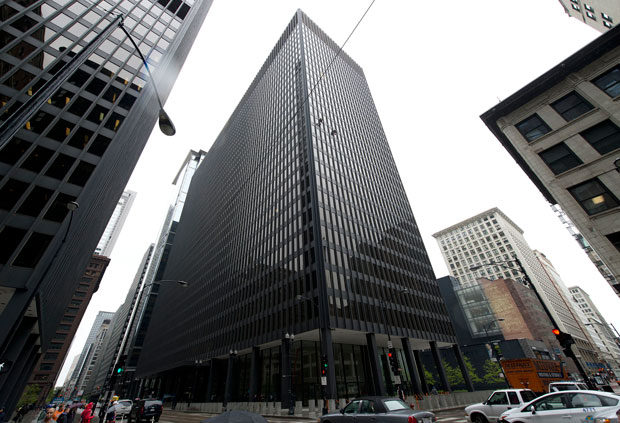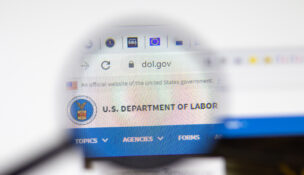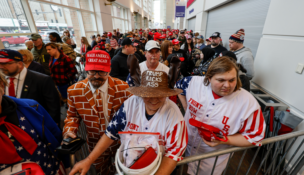7th Circuit adopts modifications to Rules 31, 34, 40, 47 and 60
By: WISCONSIN LAW JOURNAL STAFF//July 18, 2024//
7th Circuit adopts modifications to Rules 31, 34, 40, 47 and 60
By: WISCONSIN LAW JOURNAL STAFF//July 18, 2024//
On April 12, 2024, the 7th Circuit Court of Appeals issued notice that it proposed modifications to Circuit Rules 31, 34, 40, 47 and 60.
“The court carefully considered the comments received and made an additional modification to Circuit Rule 34. The court hereby provides notice of adoption of the attached modifications, effective immediately,” said Christopher G. Conway, Clerk of Court for the United States Court of Appeals for the Seventh Circuit in a written statement.
CIRCUIT RULE 31. Filing of Briefs and Failure to Timely File Briefs
(a) Time for Filing Briefs. Except in agency cases, the time for filing briefs
shall run from the date the appeal is docketed, regardless of the
completeness of the record at the time of docketing, unless the court
orders otherwise.
(b) Number of Briefs Required. The clerk of this court is authorized to accept
ten copies of briefs as substantial compliance with Rule 31(b), Fed. R.
App. P.
(c) Failure of Appellant to File Brief. When an appellant’s original brief is not
filed when it is due, the procedure shall be as follows:
(1) All Criminal Cases in Which the Defendant Has Counsel and Civil
Cases With Court-Appointed Counsel. The clerk shall enter an order
directing counsel to show cause within 14 days why disciplinary
action should not be taken. The court will then take appropriate
action.
(2) All Other Cases. The clerk shall enter an order directing counsel,
or a pro se appellant, to show cause why the appeal should not
be dismissed. The court will then take appropriate action.
(d) Failure of Appellee to File Brief. When an appellee’s brief is not filed on
time, the clerk shall enter an order requiring the appellee to show cause
within 14 days why the case should not be treated as ready for oral
argument or submission and the appellee denied oral argument. The
court will then take appropriate action.
(e) [Rescinded]
2
CIRCUIT RULE 34. Oral Argument
(a) Notice to Clerk. The names of counsel intending to argue orally shall be
furnished to the clerk not later than five business days before the
argument.
(b) Calendar.
(1) The calendar for a particular day will generally consist of six
appeals scheduled for oral argument at 9:30 a.m. The amount of
time allotted for oral argument will be set based on the nature of
the case. The clerk will notify counsel of the allocation
approximately 21 days before the argument. The types of cases
listed below are to be given priority, though the sequence of
listing here is not intended to indicate relative priority among the
types of cases.
(i) Appeal from an order of confinement after refusal of an
immunized witness to testify before the grand jury.
(These appeals must be decided within 30 days.) 28
U.S.C. § 1826.
(ii) Criminal Appeals. Rule 45(b), Fed. R. App. P.
(iii) Appeals from orders refusing or imposing conditions of
release, which will be heard without the necessity of
briefs. Rule 9, Fed. R. App. P.
(iv) Appeals involving issues of public importance.
(v) Habeas corpus and 28 U.S.C. § 2255 appeals.
(vi) Appeals from the granting, denying, or modifying of
injunctions.
(vii) Petitions for writs of mandamus and prohibition and
other extraordinary writs. Rule 21(b) and (c), Fed. R.
App. P.
(viii) “Any other action if good cause therefore is shown. For
purposes of this subsection, ‘good cause’ is shown if a
3
right under the Constitution of the United States or a
Federal Statute (including rights under section 552 of
Title 5) would be maintained in a factual context that
indicates that a request for expedited consideration has
merit.” 28 U.S.C. § 1657.
(2) Consideration will be given to requests addressed to the clerk by
out-of-town counsel to schedule more than one appeal for oral
argument the same day in order to minimize travel time and
expenses.
(3) Requests by counsel, made in advance of the scheduling of an
appeal for oral argument, that the court avoid scheduling the oral
argument for a particular day or week will be respected, if
possible.
(4) Once an appeal has been scheduled for oral argument, the court
will not ordinarily reschedule it. Requests under subparagraphs
(2) and (3) of this paragraph must be submitted by letter filed
electronically with the clerk’s office and should be made by no
later than seven days after the filing of the appellee’s brief.
Counsel must specify the dates and general reasons why counsel
is unavailable in the letter, and counsel’s signature serves as an
averment of the accuracy of those statements. The court may
choose not to accommodate unavailability requests made more
than seven days after the filing of the appellee’s brief. Any
request for rescheduling of oral argument must be made by
formal motion in accordance with Circuit Rule 34(e).
(c) Divided Argument Not Favored. Divided arguments on behalf of a single
party or multiple parties with the same interests are not favored by the
court. When such arguments are nevertheless divided or when more
than one counsel argues on the same side for parties with differing
interests, the time allowed shall be apportioned between such counsel
in their own discretion. If counsel are unable to agree, the court will
allocate the time.
(d) Preparation. In preparing for oral arguments, counsel should be mindful
that this court follows the practice of reading briefs prior to oral
argument.
4
(e) Waiver, Postponement, or Presentation of Oral Argument by Telephonic or
Video Communications. Any request for waiver, postponement, or remote
presentation of a scheduled oral argument must be made by formal
motion. Unless good cause is shown, no later than 14 days before the
argument date and after conferring with opposing counsel, a party may
file a motion to waive, postpone, or present oral argument by telephonic
or video-communications platforms approved by the court. The motion
shall: (1) state the reason for the request; (2) indicate whether the request
is opposed or unopposed; (3) if seeking postponement, state why
postponement is necessary instead of oral argument by telephonic or
video communications or by other counsel of record; and (4) if
requesting to present oral argument by telephonic or video
communications, identify which counsel wish to appear remotely. The
court prefers joint motions. Postponements will be granted only in
extraordinary circumstances. Any motion for the waiver,
postponement, or remote presentation of a scheduled oral argument
made less than 14 days before the argument date must specify the facts
that are the basis of the motion that did not exist earlier.
(f) Statement Concerning Oral Argument. A party may include, as part of a
principal brief, a short statement explaining why oral argument is (or is
not) appropriate under the criteria of Fed. R. App. P. 34(a). This
statement does not operate as a waiver of oral argument. Any request
for waiver of oral argument must be made by formal motion in
accordance with Circuit Rule 34(e).
(g) Citation of Authorities at Oral Argument. Counsel should not cite or
discuss a case at oral argument unless the case has been cited in one of
the briefs or promptly drawn to the attention of the court and opposing
counsel by a filing under Fed R. App. P. 28(j).
(h) Argument by Law Student. The court may permit a law student to present
oral argument under supervision of a member of this court’s bar, with
the client’s written approval, if the representation is permitted under
the applicable state licensure rules (e.g., Ill. Sup. Ct. R. 711; Ind. Admis.
and Disc. R. 2.1; Wis. Sup. Ct. R. 50). The supervising attorney’s motion
must be filed at least 14 days before the date on which argument is to
be held and must state the reasons why presentation of argument by a
law student is appropriate.
5
CIRCUIT RULE 40. Petitions for Rehearing
(a) Table of Contents. The petition for rehearing shall include a table of
contents with page references and a table of cases (alphabetically
arranged), statutes and other authorities cited, with reference to the
pages of the brief where they are cited.
(b) Number of Copies. Ten copies of a petition for rehearing shall be filed,
except that fifteen shall be filed if the petitioner suggests rehearing en
banc.
(c) Time for Filing After Decision in Agency Case. The date on which this court
enters a final order or files a dispositive opinion is the date of the “entry
of judgment” for the purpose of commencing the period for filing a
petition for rehearing in accordance with Fed. R. App. P. 40,
notwithstanding the fact that a formal detailed judgment is entered at a
later date.
(d) Time for Filing after Decision from the Bench. The time limit for filing a
petition for rehearing shall run from the date of this court’s written order
following a decision from the bench.
(e) Rehearing Sua Sponte before Decision. A proposed opinion approved by a
panel of this court adopting a position which would overrule a prior
decision of this court or create a conflict between or among circuits shall
not be published unless it is first circulated among the active members of
this court and a majority of them do not vote to rehear en banc the issue
of whether the position should be adopted. In the discretion of the panel,
a proposed opinion which would establish a new rule or procedure may
be similarly circulated before it is issued. When the position is adopted
by the panel after compliance with this procedure, the opinion, when
published, shall contain a footnote worded, depending on the
circumstances, in substance as follows:
This opinion has been circulated among all judges of this court in regular
active service. (No judge favored, or, A majority did not favor) a
rehearing en banc on the question of (e.g., overruling Doe v. Roe.)
6
CIRCUIT RULE 47. Advisory Committee
The court shall appoint an Advisory Committee to provide a forum for
continuing study of the procedures of the court and to serve as a conduit
between members of the bar who have suggestions for change and the court,
which retains ultimate responsibility for effectuating change. The committee
shall consist of one district judge, one law school professor, and three
attorneys from each state of the circuit, Illinois, Indiana, and Wisconsin, who
have demonstrated a commitment to the Seventh Circuit, and, as ex officio
members, the Circuit Executive, the Senior Staff Attorney, and the Clerk of
this court. The district judges, attorneys, and law school professors on the
committee shall serve three-year terms and may serve for no more than a
total of two terms.
The court shall appoint a chair from the membership of the committee. The
chair shall serve for a two-year term and may serve for no more than a total
of two terms as chair. The advisory committee shall promulgate its own
rules, and call its own meetings. The advisory committee shall arrange for
notice of proposed rule changes and shall consider comments received.
From time to time, as it deems necessary or advisable, the advisory
committee shall make recommendations to the circuit council or to the
court. Suggestions for consideration by the advisory committee may be
filed with the clerk of this court.
7
CIRCUIT RULE 60. Seventh Circuit Judicial Conference
(a) Purpose of the Conference. The Chief Judge shall call a circuit judicial
conference either annually or biennially in accordance with 28 U.S.C. §
333 and all applicable Judicial Conference policies and guidance for the
purpose of considering the business of the courts and advising means
of improving the administration of justice within the circuit.
(b) Members of the Conference. Each active Circuit, District, Bankruptcy, and
Magistrate Judge of the Circuit shall be a member of the conference. The
following shall be members of the conference and are encouraged to
attend: (1) Senior Circuit, District, Bankruptcy, and Magistrate Judges;
(2) Circuit Executive, Deputy Circuit Executive, Senior Staff Attorney
for the Seventh Circuit, staff attorneys, and law clerks to all active and
senior status Circuit, District, Bankruptcy, and Magistrate Judges; (3)
Clerks and Deputy Clerks of the Court of Appeals, District Courts and
Bankruptcy Courts in the Circuit; (4) United States Attorneys in the
Circuit and their legal staffs; (5) Federal Defenders and Community
Defenders in the Circuit and their legal staffs; (6) Members of the
Seventh Circuit bar; (7) Special guests invited by the Chief Judge; (8)
United States Trustees in the Circuit and their legal staffs; and (9) at the
discretion of the Chief Judge, any member of the bar of any court
interested in the work of the courts and the administration of justice in
the Circuit.
(c) Executive Session. All or part of one day of the conference may be
designated by the Chief Judge as an executive session to be attended
only by active Circuit, District, Bankruptcy, and Magistrate Judges, and
other court personnel.
Legal News
- 7th Circuit adopts modifications to Rules 31, 34, 40, 47 and 60
- MPD issues statement on outside agency officer assignments
- Teen charged with stealing Trump campaign team SUV from Pfister Hotel
- Aircraft intercepted near Milwaukee for flying in RNC’s restricted flight zone
- Day Three RNC: Vance accepts VP nomination, protests turn aggressive, security remains in spotlight
- Milwaukee-area group home operator agrees to pay $27K in back wages, damages
- Wisconsin cities want presidential candidates to pay for pricey campaign stops
- Panel recommends removing ex-chancellor from Wisconsin college faculty post for making porn videos
- Officials confirm Iranian plot to assassinate former President Trump
- Former British Prime Minister visits Milwaukee to meet with Trump over Russia-Ukraine conflict
- Greenfield Police to lead investigation into fatal Milwaukee shooting involving Ohio officers
- Day Two RNC: Police deescalate Milwaukee protesters; spotlight on immigration and security
Case Digests
- Absentee Ballot Drop Boxes
- Separation of Powers- Legislative Oversight of Executive Actions
- Notice of Recommitment and Involuntary Medication Hearings
- Firearm Possession-Sufficiency of Evidence
- Motion for Substitute Counsel
- Jury Instructions
- Equal Credit Opportunity Act
- Fourth and 14th Amendment Rights-Parental Medical Neglect
- Eminent Domain
- Intrusion Upon Seclusion Claim-§1983 claim
- Employment Law- Title VII
- Employment Law












